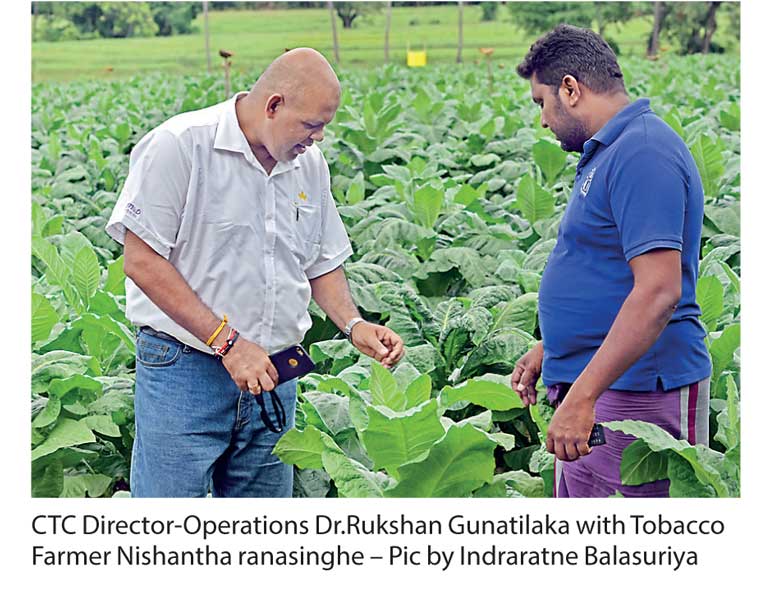Friday Feb 27, 2026
Friday Feb 27, 2026
Friday, 15 September 2017 00:00 - - {{hitsCtrl.values.hits}}
 Sri Lanka is losing out on over $ 30 million in export incomes due to its volatile stance on tobacco leaf farming. Ceylon Tobacco Company’s Supply Chain Director Rukshan Gunatilaka said that the company had secured an order of 30,000 kilograms of tobacco leaf to Belgium this year, and whilst they remain keen to expand export operations due to the quality and grade of Sri Lanka’s leaf produce, the uncertainty over tobacco farming casts a damper over long-term efforts.
Sri Lanka is losing out on over $ 30 million in export incomes due to its volatile stance on tobacco leaf farming. Ceylon Tobacco Company’s Supply Chain Director Rukshan Gunatilaka said that the company had secured an order of 30,000 kilograms of tobacco leaf to Belgium this year, and whilst they remain keen to expand export operations due to the quality and grade of Sri Lanka’s leaf produce, the uncertainty over tobacco farming casts a damper over long-term efforts.
Gunatilaka was speaking at a Leaf Visit for media in Dambulla this week, referring to statements made by Government ministers that tobacco cultivation would be banned in Sri Lanka by the year 2020. Over 20,000 families and over 100,000 persons depend on tobacco farming for livelihoods, which offers a fixed price for produce, free extension services, children’s scholarship programmes and a farmer pension scheme. Interestingly, amidst the rhetoric on an impending ban on tobacco cultivation, the government yesterday it would launch its first cannabis cultivation for export and medicinal purposes.
Sri Lanka grows over 2,500 hectares of tobacco for the production of cigarettes by Ceylon Tobacco Company, which constitutes up to 0.1% of arable land in the country. The company infuses over Rs. 2 billion into the rural economy through its leaf operations, and eliminates the outflow of over Rs. 4 billion in foreign exchange by producing crop locally.
Gunatilaka added that CTC was able to supply export markets this year, following the drop in sales volumes resulting from the 45% price hike in cigarettes last year. He added that good volumes can be achieved for export also give the high quality of Sri Lanka’s tobacco leaf, which includes burly leaf, but policy needs to be sustainable before they can look deeper into serving further export markets.